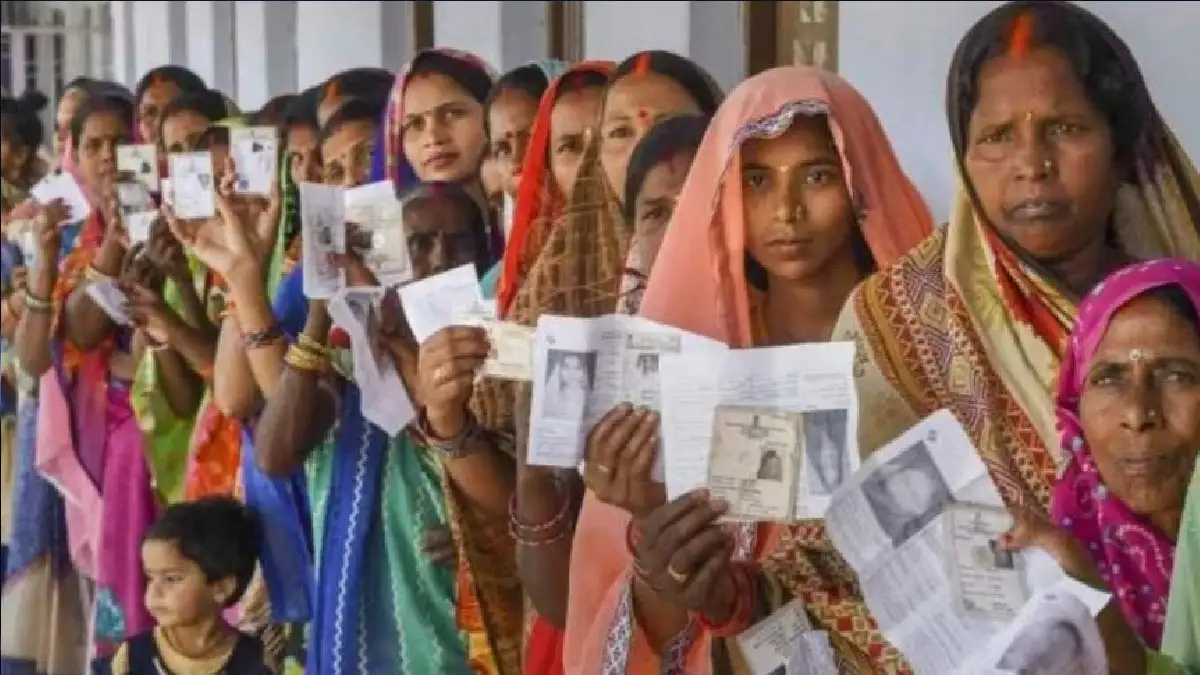
Focus on women-centric schemes dominates Delhi poll campaign amid sustainability concerns
With less than two weeks to go before the Delhi Assembly Elections, all main three parties – Aam Aadmi Party (AAP), Bharatiya Janata Party (BJP) and Congress were leaving no stone unturned to woo women voters in the national capital. They stressed monetary support for women if they came to power in Delhi.
BJP’s promises for women
The BJP’s Mahila Samridhi Yojana pledges Rs 2,500 per month to women voters, along with a Rs 21,000 maternity benefit and a Rs 500 subsidy on LPG cylinders.
AAP’s promise – Rs 2,100 per month for women
Similarly, AAP has promised Rs 2,100 per month for women, while Congress has floated its ‘Pyari Didi Yojana’ with Rs 2,500 monthly cash transfers.
Congress promises Rs 2,500 for women
The Congress is not lagging in the race. The grand old party has promised monthly financial assistance of Rs 2,500 to women under the ‘Pyari Didi Yojana’ if the party is voted to power in the national capital.
While these announcements align with a broader trend in Indian politics, reflected in schemes like Madhya Pradesh’s ‘Ladli Behna Yojana’ and Maharashtra’s ‘Ladki Bahin Scheme’, critics have question the feasibility of such measures.
What do experts think about the viability of these promises?
Experts have highlighted the growing focus on women-centric schemes signalling a deeper acknowledgement of women’s critical role in shaping electoral outcomes.
However, experts have also raised concerns about the sustainability and long-term consequences of relying on populist measures to secure their support.
Jagdeep Chhokar, founder of poll rights body the Association for Democratic Reforms, expressed skepticism about the efficacy of these schemes.
‘Freebies only offer short-term relief’
“Freebies only offer short-term relief. Teaching people skills to become self-reliant should be the focus,” he said, adding that voters must be made aware of the cost of these benefits, which ultimately come from public funds.
“Even the poorest pay taxes indirectly, whether through GST on essential items or services,” he noted.
Brinda Karat, CPI(M) leader and activist, views these promises as a double-edged sword.
“Such schemes reflect the growing assertion of women as independent citizens, but they often reduce women to mere beneficiaries rather than rights holders,” she said.
While welcoming cash transfers as recognition of women’s unpaid labour contributing nearly 7 per cent to India’s GDP, she emphasized that the narrative must shift toward empowering women with rights, not just sops.
Political analysts argue that these promises, though populist, could transform women into more independent voters.
Professor Mohammad Aftab Alam of Aligarh Muslim University highlighted how such schemes can disrupt traditional voting patterns.
“Women voters often rely on male family members for political decisions. Targeted welfare measures can empower them to make independent choices,” he said.
Sushila Ramaswamy, a professor at Jesus and Mary College, pointed out the flexibility and dignity offered by cash transfers.
“Unlike material goods, cash allows women to make their own decisions, boosting their autonomy. This has proven to be a game-changer, especially for women from weaker sections,” she said, adding that parties in power have a distinct advantage in delivering these benefits before elections building voter trust.
Women voters across economic strata have expressed varied perspectives on these schemes. Shanti Devi, a vegetable vendor from Haiderpur, called cash assistance transformative.
“It can help pay school fees or rent during tough times. It’s better than goods because I can choose what I need most,” she said.
Seema Singh, a domestic worker from Mayur Vihar, agreed, citing existing benefits like free bus travel as significant savings. “If they add cash transfers, it will give me more security,” she said.
However, middle-class women have different priorities. “These schemes are helpful for the poor, but what about better roads, improved infrastructure, and quality education?” asked Pooja Verma, a schoolteacher in Sarita Vihar.
For Anjali Kumari, a beautician in Madanpur Khadar, the need for economic opportunities outweighs short-term benefits.
“The schemes are helpful, but they won’t lift us out of poverty. We need better jobs and access to loans,” she said.
The growing focus on women-centric welfare schemes underscores their electoral importance, but experts warn of the need for sustainable development measures.
As Delhi votes on February 5, the effectiveness of these promises will not only be tested at the ballot box but also in the broader discourse on women’s empowerment.
(With PTI inputs)


